HOW do you write about sex?
This was the question put to Reshma Ruia, the co-founder of a south Asian women’s writing collective, The Whole Kahani (the complete story), when the group of eight authors launched their third anthology in London last week.
Tongues and Bellies, a short story collection, has been brought out by Linen Press, “a small, independent publisher run by women for women”.
The latest anthology follows on from Love Across a Broken Map (2016) and May We Borrow Your Country (2019).
Ruia – a finalist in Eastern Eye’s literature category in the Arts Culture Theatre Awards (ACTA) in 2023 for Mrs Pinto Drives to Happiness – said she preferred to use “intimacy” instead of “sex”.
“Intimacy is an important bedrock of a relationship,” said Ruia. “My short stories and novel largely deal with relationships, the conflicts and the compromise that can shape such an interaction.”
From the latest anthology, she read a short extract from Meg Kowalski’s Birthday Cake, which was about “betrayal in marriage. The central heroine or protagonist discovers her husband is cheating on her. And it tells of how she exacts revenge.
“Similarly, my new novel, Still Lives, is about betrayal and belonging. The main character, the male narrator, falls out of love with his wife and embarks on an affair with the wife of a business competitor. And that has tragic consequences.
“So what drives these men and women to break the sanctity of marriage, to betray their families, to lose it all, to break the moral code?
“As a writer, I’m fascinated by the motives and the choices people make. Intimacy or lack of it can be the big elephant in the room for my characters.
“And intimacy, of course, does not just have to be physical – it can be emotional, it can be tangible, it can be intangible. Moreover, we all know that sex is never only about sex, it can be a substitute for so many things – revenge, power, loneliness, self-esteem. It’s the engine that drives a relationship forward or backward. Or sometimes it just comes to a stop.”
She did not want to use sex “just to titillate the reader. It’s very easy to be graphic and a bit like Fifty Shades of Grey. For me, the intimacy serves as a tool to reveal the inner life of a character, the back story and provide a window into the character’s mind and inner landscape.”
She added: “For me, it doesn’t need to be explicit or vulgar. I think subtle suggestiveness and implied is much more powerful. A lot is left to the reader’s imagination.”
She and a fellow author, Kavita A Jindal, set up The Whole Kahani in 2011.
Ruia said: “Our aim is really to showcase exciting new south Asian literary voices that break the stereotype expectation of what a typical south Asian narrative is.
“There’s not one south Asian way of writing, just as there’s not one particular European way of writing. We come from different parts of the subcontinent and our members are IT executives, media gurus, scriptwriters, journalists – the whole gamut. We are eight members now. Pre-Covid we used to workshop each other’s work. It’s very collaborative, which is quite unusual, because writing is a very solitary activity.”
The launch venue was elegant – the CrossRail Roof Place Gardens in Canary Wharf. Three members of the Kahani collective – Catherine Menon, Radhika Kapur and Khadija Rouf – were not present, but the other five read extracts from their short stories.
Jindal, who read from The Unusual Properties of Cork, was recognised by Eastern Eye in 2020 when her novel, Manual for a Decent Life, won the best literature ACTA.
She remarked: “There are so many threads simultaneously running through my writing, and I make really complex characters. They are all good and bad at the same time.
“One of the main themes for me is the strangeness of life.” Observing “life can be wonderful and terrible at the same time”, she quoted from Charles Dickens that “it was the best of times, it was the worst of times”.
She estimated that south Asians made up nine per cent of the UK population, but this was not reflected by the publishing world.
Monda Dash, an ACTA literature finalist in 2021 and in 2023, read from Fast with a Purpose.
She said it dealt with “difficult things going on (in a woman’s life) because her marriage is not what she thought it was. She’s also had problems with her job.
“She goes back from New York to her home in Bhubaneswar in Orissa (now Odisha) which is where I’m from. The day she arrives is Savitri, when women fast for their husbands.”
She said: “I normally write poetry, short stories and novels – and I’ve written a memoir of my life. I know most of my characters tend to be women.
“I love writing about a place because I think a place also influences us to a big extent.”
Nadia Kabir Barb read from The Connoisseur, set at a wedding feast in Bangladesh, when her character, Shamin, is outraged at the lack of potatoes in his biryani.
She read a passage: “Shamin looked up from his food ….‘This biryani is disgraceful. Where are the potatoes? Is there a shortage of potatoes in Bangladesh?
“And I tell you,’ there was a pause for dramatic effect, ‘This.’ He pointed to the platter in the centre. ‘wasn’t made with ghee.’” Barb said: “Home-cooked food or food where we came from is an integral part of who we are.
“So, for Shamim, biryani is exactly that.” She went on: “As a writer, I have my three tools. One is the power of observation. Second is curiosity. And the third is imagination.
“I spend a lot of time people watching, which can sound creepy, but I promise you it’s not. When I’m out, whether it’s in Bangladesh or here, I look at people, and observe how they behave, their mannerisms, how they speak, and then my curiosity kicks in. And I wonder, ‘OK, who are these people? What are these stories?’”
Deblina Chakrabarty read from Lost for Words, which was written “three years ago in peak lockdown” and inadvertently anticipated the contemporary worries about AI. The tale was “about grief and loss set in a dystopian future in an unnamed setting”.
Her story was “about isolation when you get locked down in your bubble of grief and loss. And then I superimposed that with the world we’re living in, moving towards right-wing authoritarianism, where large-scale populations voluntarily are handing over their choices, their autonomy, their freedom, their humanity, to governments. Once you get locked in your bubble, you lose your desire and ability to connect with other people.” Her character in the story felt safe only when controlling an AI version of himself because connecting with another human being had become “scary”.
“And that’s why in a way, what AI is today is a perfect, polished, convenient, version of ourselves, whereas human beings are messy and glorious and paradoxical – and we don’t add up. In retrospect the story has become a comment on AI. But when I wrote it, it was a comment on the loss of our ability or desire to connect with other people,” she said.
Tongues and Bellies: The Whole Kahani is published by Linen Press. £9.99

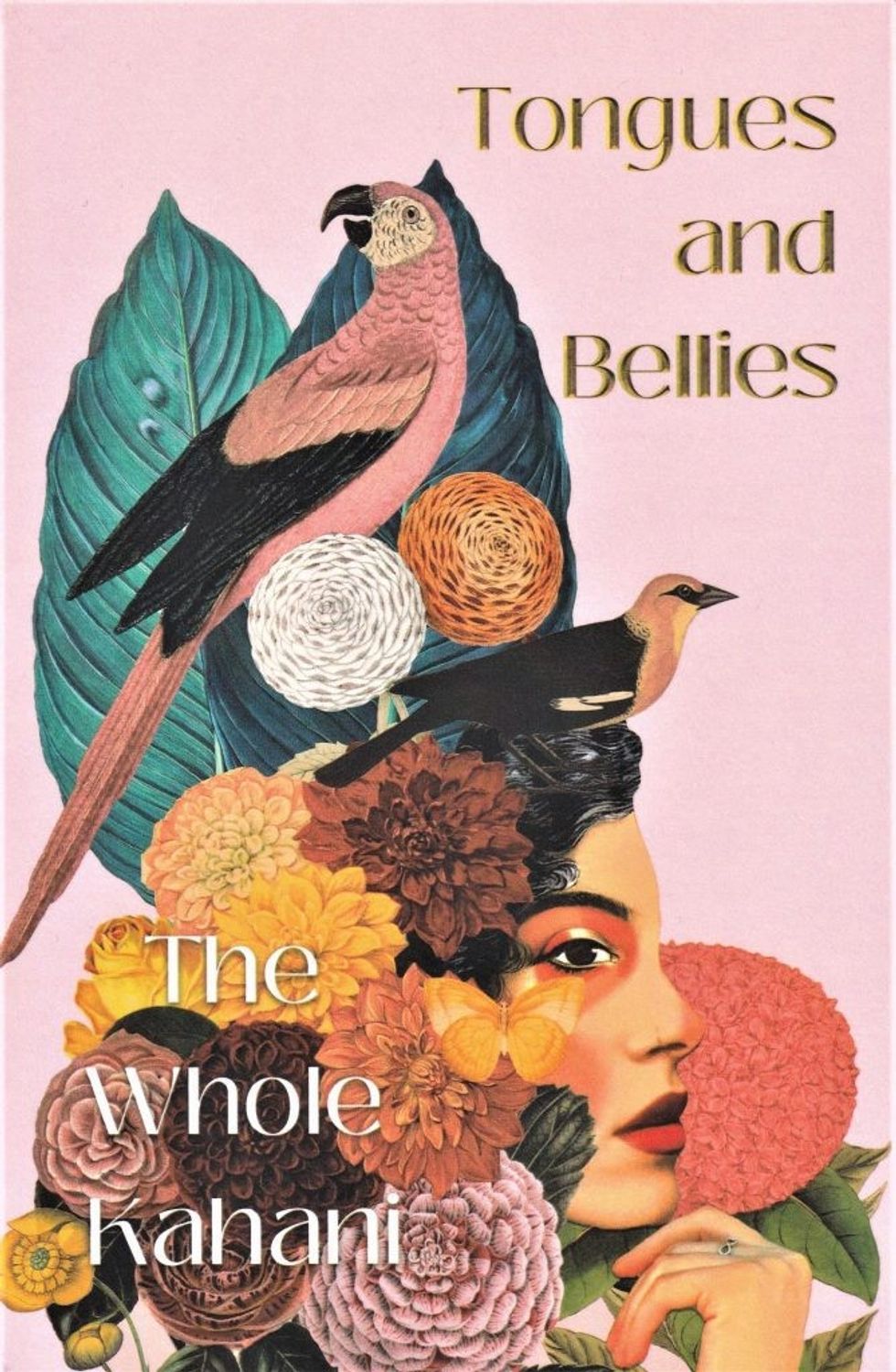





 Lunchbox is a powerful one-woman show that tackles themes of identity, race, bullying and belongingInstagram/ lubnakerr
Lunchbox is a powerful one-woman show that tackles themes of identity, race, bullying and belongingInstagram/ lubnakerr She says, ''do not assume you know what is going on in people’s lives behind closed doors''Instagram/ lubnakerr
She says, ''do not assume you know what is going on in people’s lives behind closed doors''Instagram/ lubnakerr








 He says "immigrants are the lifeblood of this country"Instagram/ itsmetawseef
He says "immigrants are the lifeblood of this country"Instagram/ itsmetawseef This book is, in a way, a love letter to how they raised meInstagram/ itsmetawseef
This book is, in a way, a love letter to how they raised meInstagram/ itsmetawseef
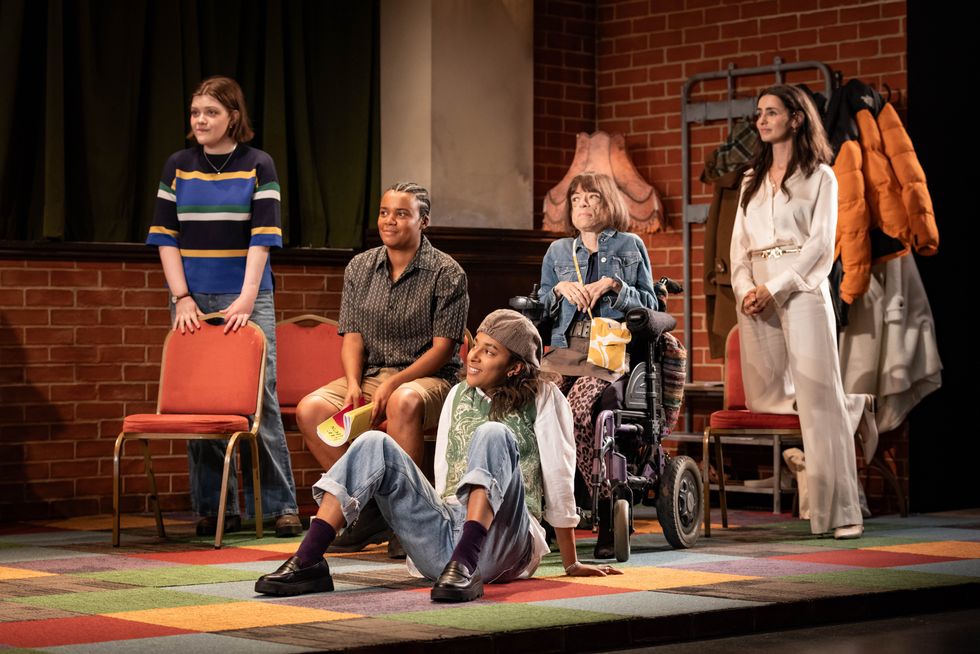 The crew of The Ministry of Lesbian Affairs
The crew of The Ministry of Lesbian Affairs
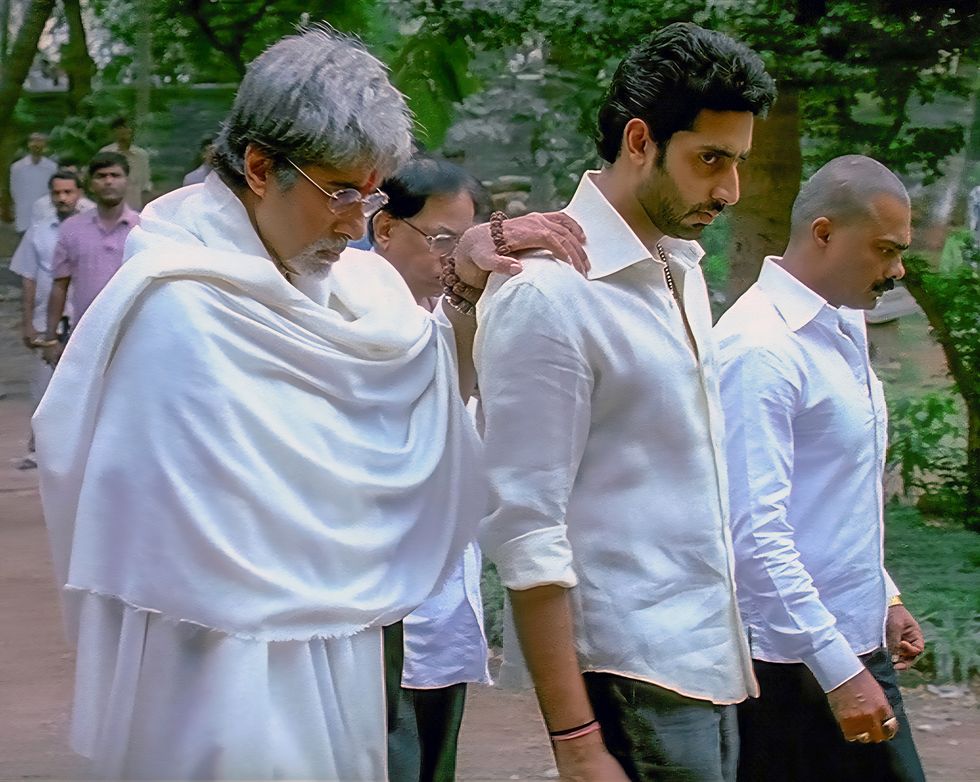 A still from Sarkar, inspired by 'The Godfather' and rooted in Indian politicsIndia Glitz
A still from Sarkar, inspired by 'The Godfather' and rooted in Indian politicsIndia Glitz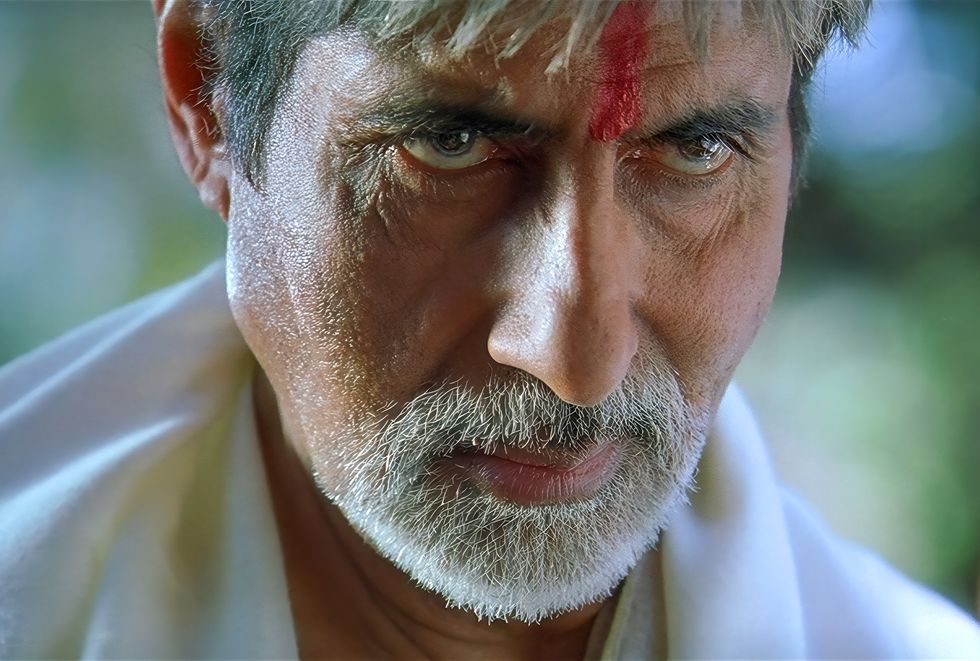 Sarkar became a landmark gangster film in Indian cinemaIndia Glitz
Sarkar became a landmark gangster film in Indian cinemaIndia Glitz The film introduced a uniquely Indian take on the mafia genreRotten Tomatoes
The film introduced a uniquely Indian take on the mafia genreRotten Tomatoes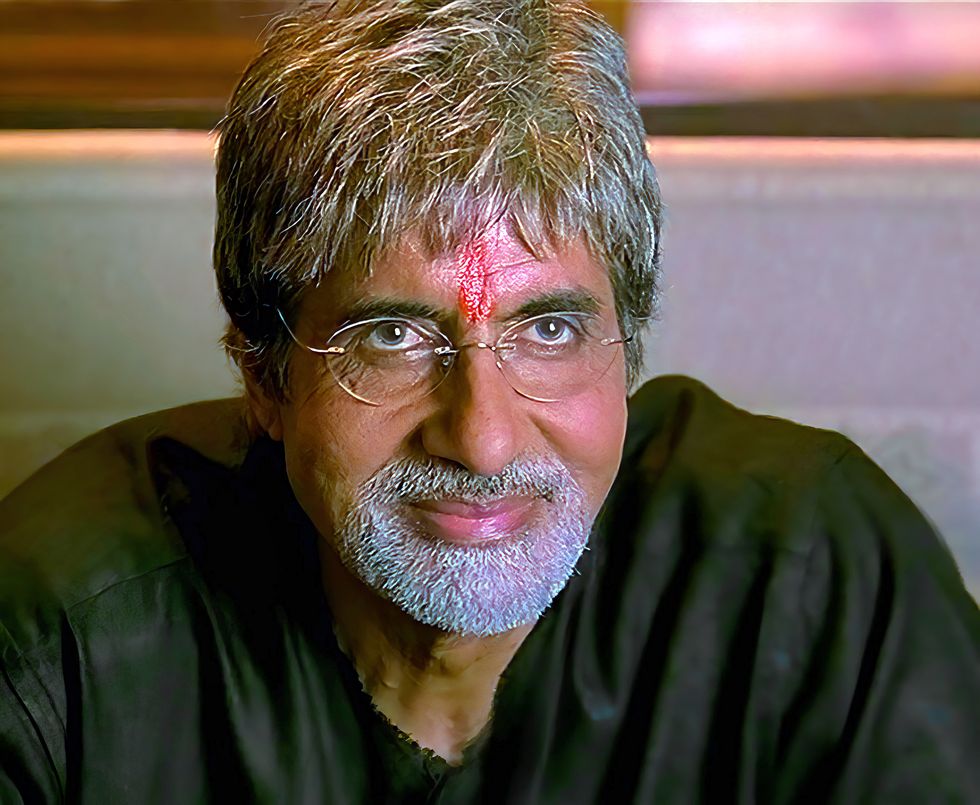 Set in Mumbai, Sarkar portrayed the dark world of parallel justiceRotten Tomatoes
Set in Mumbai, Sarkar portrayed the dark world of parallel justiceRotten Tomatoes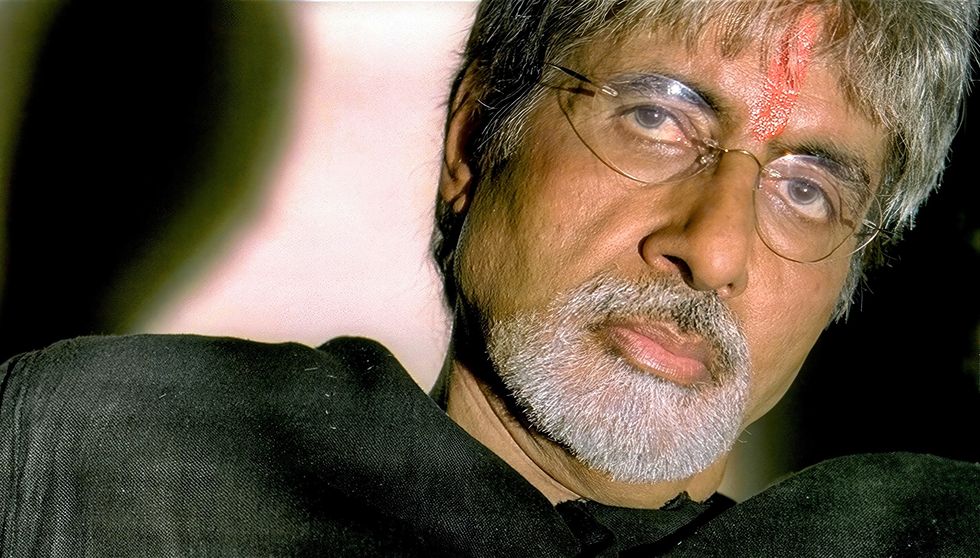 Ram Gopal Varma’s Sarkar marked 20 years of influence and acclaimIMDb
Ram Gopal Varma’s Sarkar marked 20 years of influence and acclaimIMDb
 The statues were the product of a transatlantic effortGetty Iamges
The statues were the product of a transatlantic effortGetty Iamges